―
Afghanistan ranks the lowest in the world on the gender gap index
―
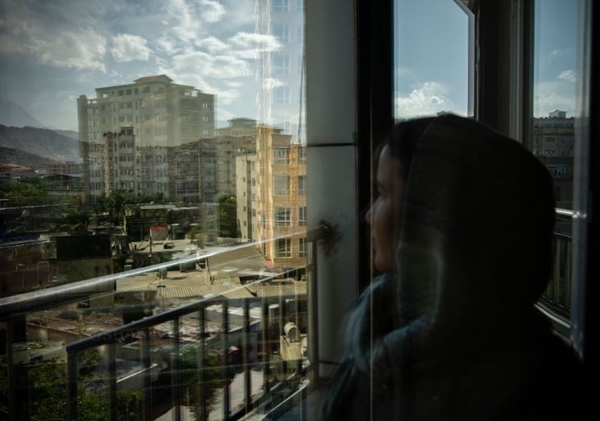
(Afghan woman. Source: Amnesty)
In the “Global Gender Gap Report” recently released by the World Economic Forum, Afghanistan was ranked bottom (146th) this year, same as last year.
The Global Gender Gap Report assesses the rankings by nation, comprehensively analyzing the gender gap in four areas: economic opportunity, education level, health and survival, and political opportunity. Afghanistan ranked 146th in economy and education, 140th in health, and 107th in political participation, summing up as the country with the greatest gender discrimination in the world.
http://www.sunhakpeaceprize.org/kr/news/issue.php?bgu=view&idx=644
(See this Sunhak Peace Prize issue on differences in national character)
You can tell at a glance how great the difference in gender equality between Iceland in 1st place and Afghanistan which came in last.
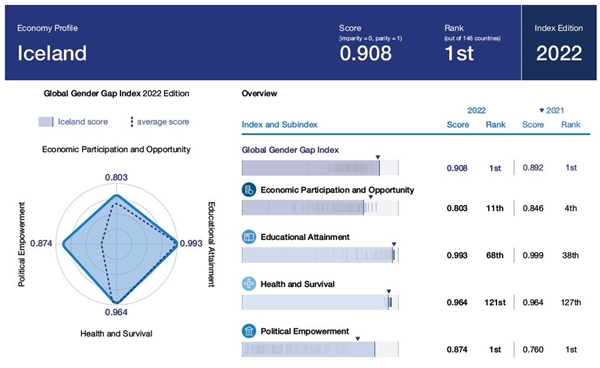
(Scores by sector in Iceland closest to gender equality)
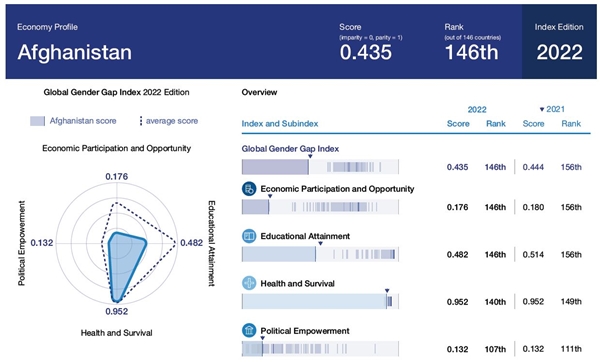
(Afghanistan ranks last in gender equality by sector sum)
―
Taliban returns after 20 years
―
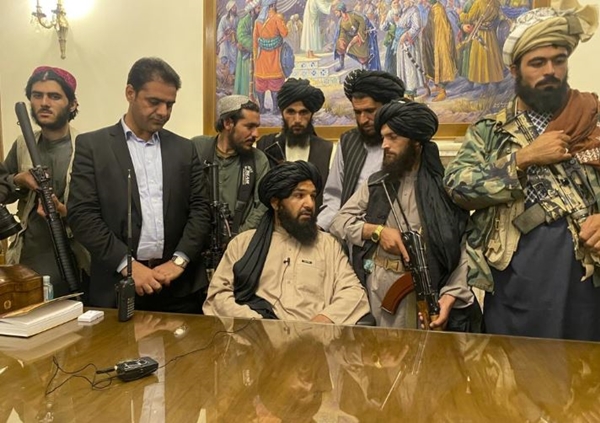
(Taliban takes over Afghan presidential palace, Aug. 2021. Source: AP)
Sadly, the suffering of women in Afghanistan resumed in August 2021 when the Taliban, who had oppressed women, regained power after 20 years.
The Taliban, notorious for human rights abuses, was banished from Afghanistan from 1996-2001. But US troops withdrew from Afghanistan last year, and Taliban occupied Afghanistan again.
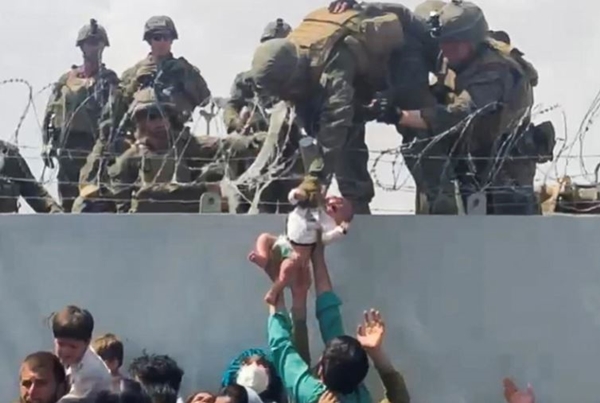
(Afghans pass babies over barbed wire to US troops at Kabul Airport. Source: Reuters, Aug. 2021)
https://apnews.com/article/afghanistan-taliban-kabul-bagram-e1ed33fe0c665ee67ba132c51b8e32a5
(Article reporting the collapse of the Afghan government and occupation of the capital by the Taliban in August 2021, AP)
When the Taliban took power, fear deepened in the international community that Afghanistan would return to the dark ages of the past. Above all, there were great concerns about the human rights abuses of Afghan women because the Taliban in the past had imposed horrendous oppression on women's movement, education, and clothing.
http://www.sunhakpeaceprize.org/kr/news/issue.php?bgu=view&idx=505
(See previous Sunhak Peace Prize article on Afghan women under Taliban)
―
Afghan women are slowly dying
―
On July 27, Amnesty International, an international human rights organization, published a report with an unusual title, "Slow Death: Women Under the Taliban", describing the lives of Afghan women after the re-takeover by the Taliban.
This report is based on interviews between Sept. 2021 and Jun. 2022 in 20 Afghan provinces with 101 women aged 14-17 years, former and current Taliban-operated detention facilities, NGOs and Afghan experts.
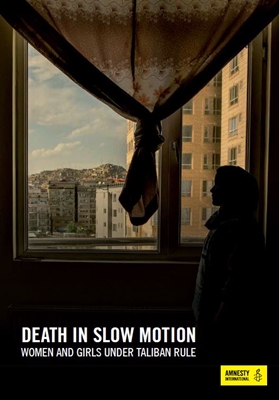
(Go to Amnesty presentation)
https://www.amnesty.org/en/latest/research/2022/07/women-and-girls-under-taliban-rule-afghanistan/
(See Amnesty presentation in English language)
The report said the Taliban had wiped out all the human rights gained by Afghan women in less than a year, and ascertained that Afghan women's rights are being violated in all areas, including education, work and freedom.
The report begins by describing the threats, arrests, detention, torture, and abduction and disappearance of women who peacefully protest the Taliban rule. Forcibly detained female conscientious objectors were subjected to various types of assault, abuse and unsanitary conditions.
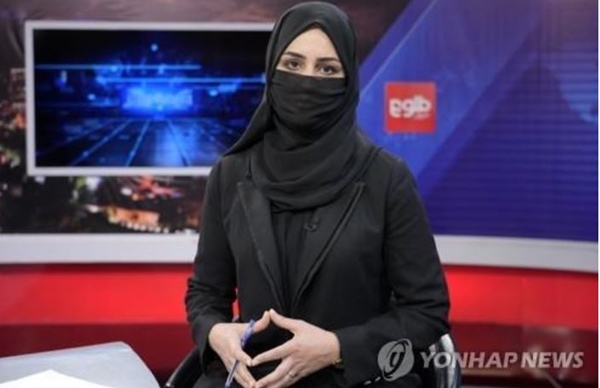
(Female anchor covering the news under the direction of the Taliban. Source: Yonhap News)
The Taliban have also banned women from working throughout Afghanistan, except for some civil servants in the health and education sectors.
Appearing in public with men without a mahram (male guardian) or one without mahram qualifications is also banned as “moral depravity.” Women are also prevented from moving freely.
The report features interviews with prison staff who testify that the number of people being jailed for bringing children to coffee shops or appearing without mahram is increasing every month, along with the affirmation that in the past there was no case of people being sent to jail for such reasons.
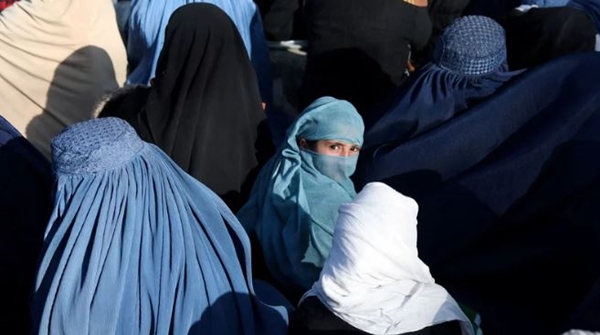
(Afghan women lining up for bread in Jan. 2022. Source: Reuters)
In addition, the proportion of child or adolescent marriage and forced marriage is rapidly increasing in Afghanistan. The main reasons given are the economic crisis, the lack of education and employment opportunities for women, a family member coerced into marrying a Taliban member, or a Taliban member him/herself being forced to marry.
The report features an interview with a mother who married her 13-year-old daughter to a 30-year-old man for 860,000 won ($670) to escape hunger. Her young teenage daughter wished to study to support her family, but since schools wouldn't admit her, she had no choice but to get married.
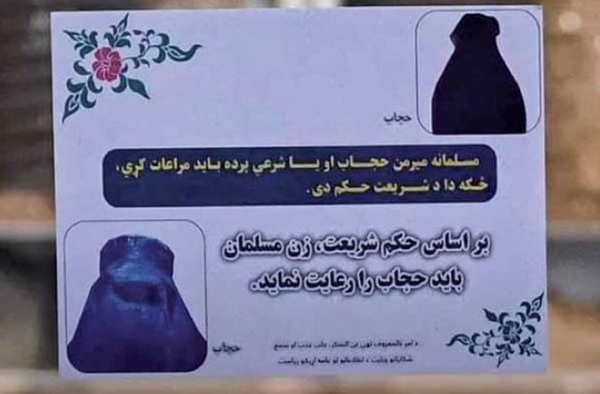
(Recommended attire for female students in Afghan universities, Source: Amnesty)
“These little girls just wanted to have a future, and now they don't see any future at all.”
― Afghan High School Teacher (Fatima)
The Taliban have almost cut off the education of girls from middle school and up. Many girls gave up their hopes of college education when Taliban created a dangerous environment for girls in universities.
Amnesty, through a UN Security Council resolution, calls on the international community to hold the Taliban accountable for their actions and use other forms of influence to hold the Taliban accountable for their treatment of women.
―
Isolated Afghanistan
―
The international community, including the United States, does not recognize the Taliban as the official government and cut off aid to Afghanistan. Foreign aid accounted for 75% of Afghanistan's public funds, so the money line is cut off. In addition, over 11 trillion won ($9 billion USD) of overseas assets of the Afghan government have been frozen.
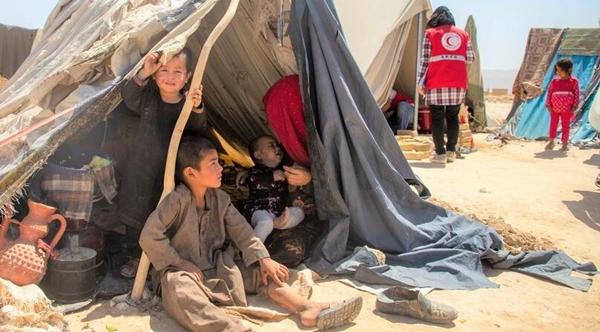
(Afghan children play in famine-parched desert. Source: Afghan Red Crescent)
According to the UN Food Program, 22.8 million people, more than half of Afghanistan's population, face extreme hunger. Afghanistan is currently suffering from acute malnutrition in 25 out of 34 states, with half of children under 5 and 25% of pregnant and breastfeeding women in need of nutritional support.
https://www.wfp.org/emergencies/afghanistan-emergency
The World Bank forecasts that Afghanistan's GDP per capita will fall by 34% this year compared to two years ago. In addition, the United Nations High Commissioner for Refugees (UNHCR) said that 5.57 million people, or 15% of Afghanistan's population, are refugees.
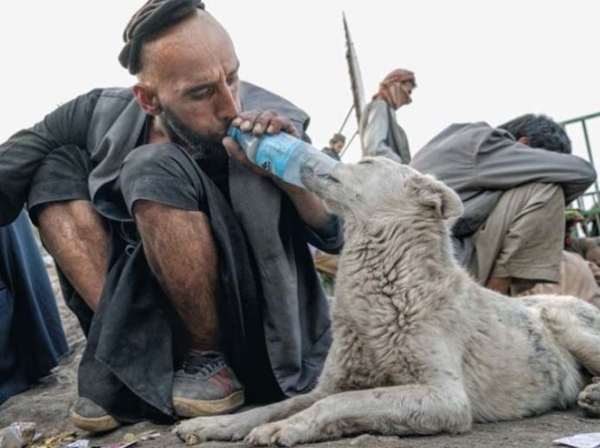
(Afghan man addicted to drugs exhales drugs into his dog's mouth. Source: AP)
Currently, human trafficking is rampant in Afghanistan, and many people are said to be addicted to drugs through the cultivation of poppies, the raw material for opium.
The Taliban appealed for support from the international community after a strong earthquake in southeastern Afghanistan in June caused extensive damage.
Afghanistan is said to be one of the few countries where the suicide rate for women is higher than for men. In order for the Taliban to receive fair treatment in the international community, policies on women's human rights must be implemented that meet the minimum international standards.
What do you think about the fact that "a country that is striving to completely close the gender gap" and "a country where even basic human rights are being suppressed because of being a woman" coexist on a small planet called Earth?
Our Sunhak Peace Prize will continue to focus attention on the human rights of Afghan women.
Written by Sharon Choi
Director of Planning
Sunhak Peace Prize Secretariat

